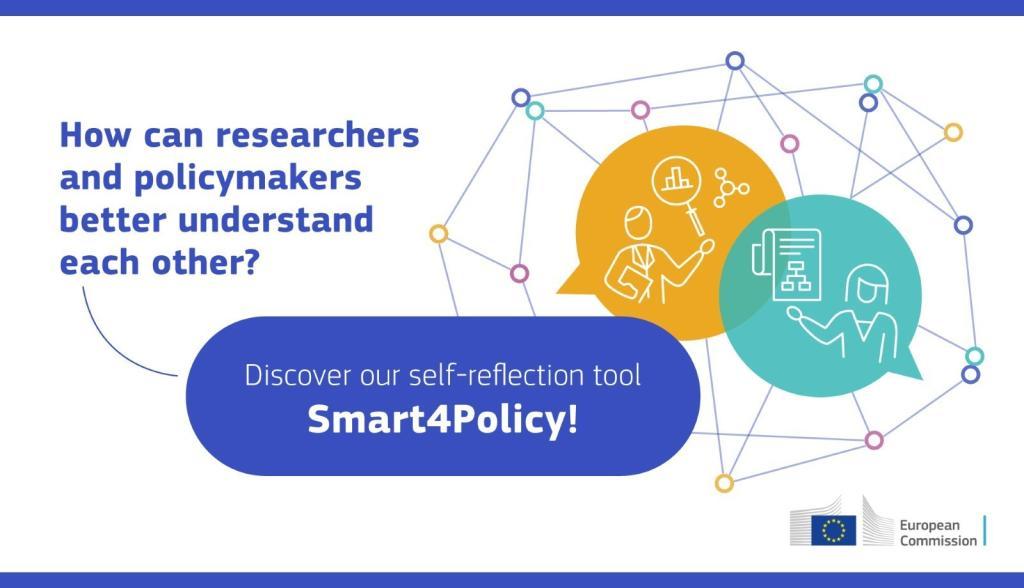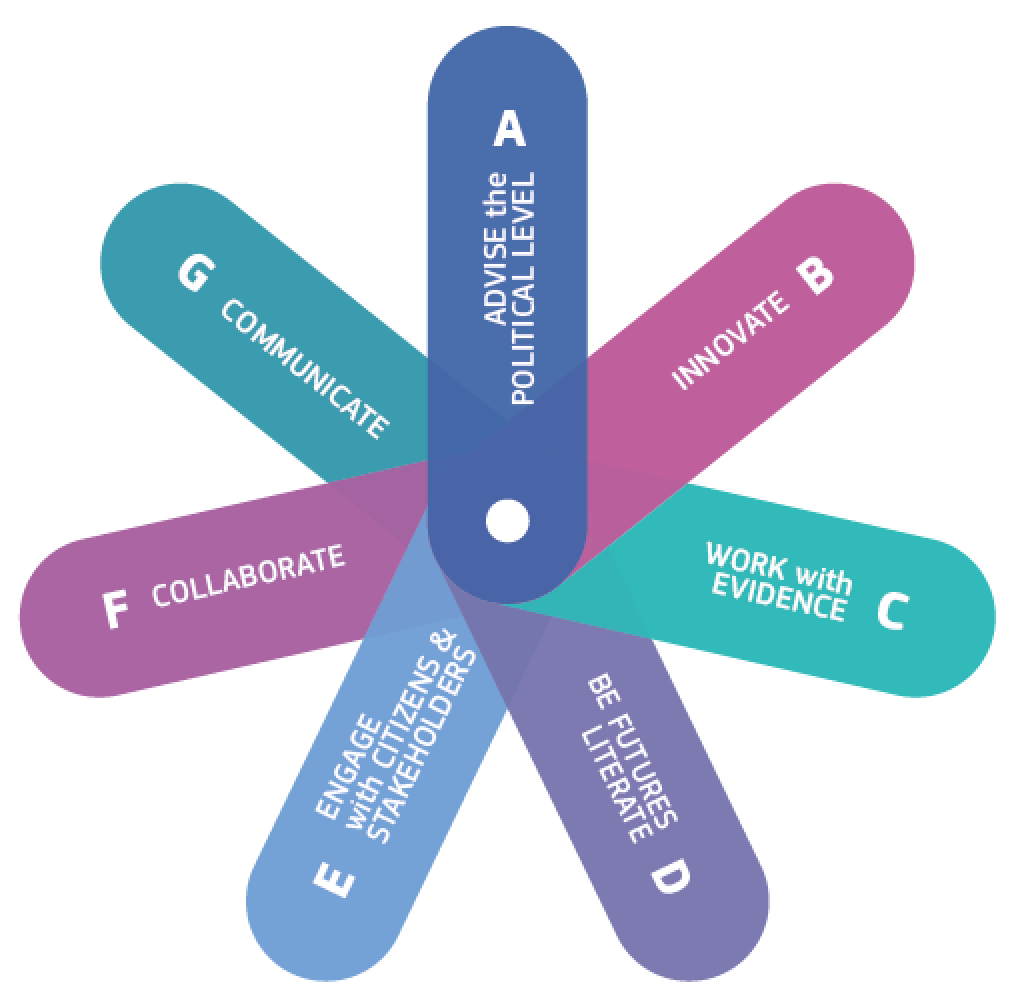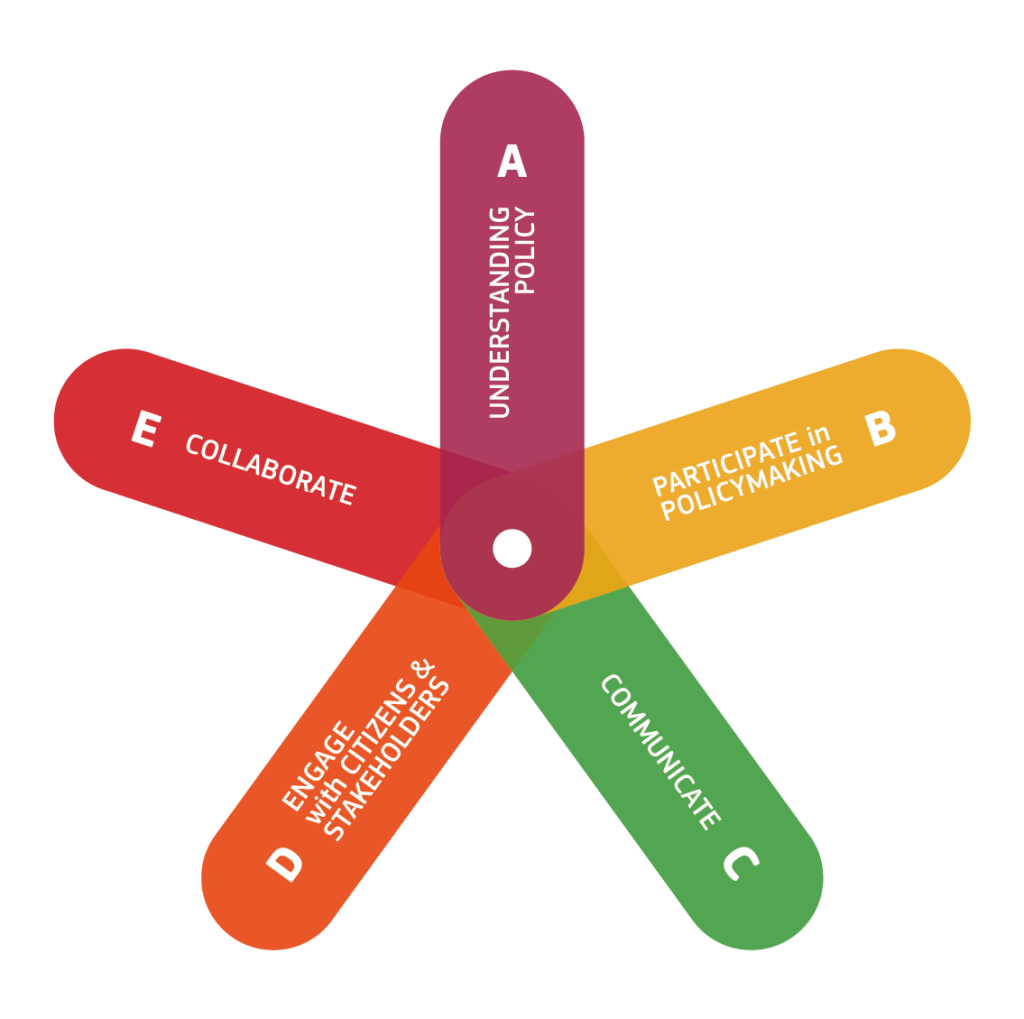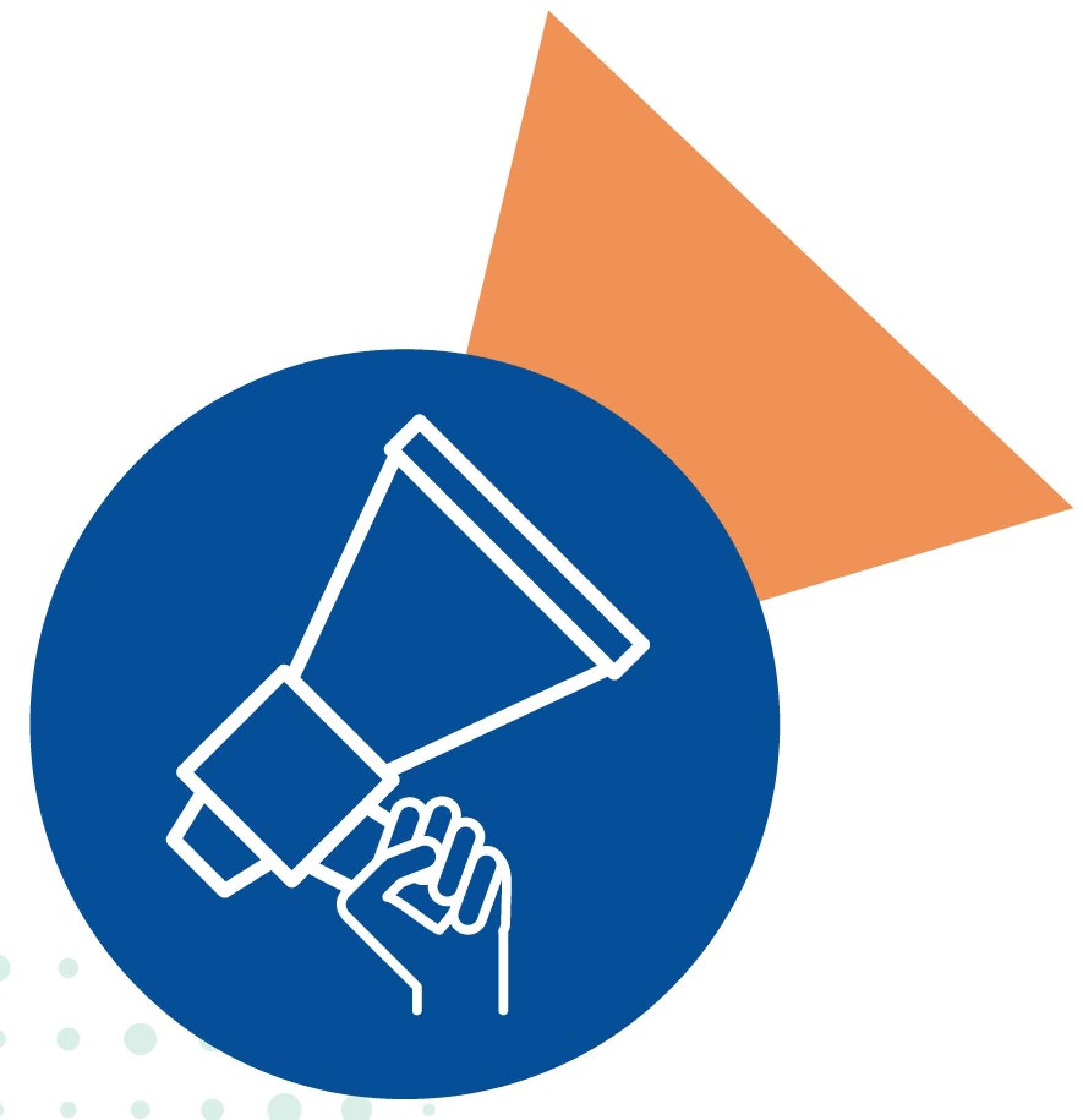Check your own competences

The new self-reflection tool to explore your own competences as a researchers in the science for policy field or as a policymaker aspiring to make innovative policy is now online. Its purpose is to help policymakers and researchers working in science-for-policy reflect on their level of competence in various fields. Smart4Policy is open to all and is free of charge.
The questions and statements in Smart4Policy are based on the competence frameworks presented presented on this page.
The Smart4Policy online self-reflection tool helps you understand where your strengths are and which areas of improvement you have. Completing a self-reflection in one session takes around 30 - 60 minutes, but you can save your self-reflection and return later. You can also decide to answer only some competence clusters. Then it takes less time.
Upon completing the questionnaire, you will automatically receive a report on your competence level in each cluster with suggestions on next steps and resources helping you improve. Based on the results, you can make an informed decision about your personal learning and development plan. For example, you could aim to be a generalist, who is somewhat good at everything. Or you could be a specialist, who aims to be excellent at one or a few connected areas of competence. Importantly, the competences are a collective set of activities, which organisations should be able to perform. But no individual policymaker or researcher can be expected to excel in all or even many of them.
Use the Smart4Policy Self-Reflection tool
Background
Why these frameworks?
Policymaking has been changing with unprecedented speed in recent years, characterised by rapid technological development, climate change, geopolitical crises, and important changes in society and in citizens' expectations.
In this context, evidence users (e.g. policymakers) and providers (e.g. researchers) are faced with an urgent need to increase the capacities for effective policymaking to rise to the global challenges, to deliver innovative and future-proof policy solutions and not least to reinforce trust in both democracy and science.This requires complementary cross-cutting competences for researchers (evidence providers) and policymakers (evidence users) to build the bridge between science and policy.
Understanding this need, the European Commission has developed a learning and development programme, the EU Policymaking Hub, to further improve EU policymaking by developing the competences needed for innovative and effective policymaking
To give guidance on the concrete competences behind the policymaking activities, the European Commission, led by the Joint Research Centre, developed two competence frameworks. The first is designed to guide policymaking organisations on the relevant competences for innovative, effective and evidence-informed policymaking, it is meant to support the EU Policymaking Hub as well as governments at national or regional level. The second framework aims at research organisations working at the science-policy interface, who are contributing to policymaking with evidence and advice. Each framework, ‘unpacks’, at four proficiency levels, the collective set of skills, knowledge and attitudes desired.
How to use them?
The frameworks are inspired by EntreComp, the European Entrepreneurship Competence Framework, outlining, for each of the competence clusters four levels of proficiency: Foundational, Intermediate, Advanced and Expert. The learning, and hence the progression to the next level, comes through training courses, on-the-job-training, peer-to-peer leaning, coaching and mentoring. The models can be used to evaluate skills, knowledge and attitudes of the organisation, team or individual. They can also be used to provide guidance on professional development (job descriptions, career paths, recruitment and capacity building).
The full JRC - Science for Policy - report can be downloaded on this page. The full frameworks, including the complete list of learning outcomes on the four levels of proficiency in each progression model are provided as an Appendix to this report.
The competence frameworks
1. Competence Framework for 'Innovative Policymaking'
The competence model for policymaking is addressing cross-cutting competences (skills, knowledge and attitudes) relevant for policymakers throughout the policy cycle and roles in the process. It sets out a future oriented perspective for policymaking and describes how these competences manifest.
The framework consists of a total of 36 competences divided into 7 clusters of competences: Advise the political level, Innovate, Work with evidence, Be futures literate, Engage with citizens and stakeholders, Collaborate, and Communicate, all enabling innovative policymaking.

View interactive visualisation
2. Competence Framework 'Science for Policy'
The ‘Science for Policy’ competence framework outlines the collective set of competences (skills, knowledge and attitudes) desired for research organisations working at the science for policy interface. The continuous development of primary research competencies are outside the scope of this framework. What is more, the framework is based on the assumption that the organisation already possesses these skills.
The framework consists of 27 competences divided into 5 clusters: Understanding policy, Participating in policymaking, Communication, Engage with citizens and stakeholders, and Collaborate.

View interactive visualisation
More information
Get in touch

If you are interested in applying these frameworks in your work, or share your user experience, we would like to hear from you!
- Send an email to
Florian Schwendiger Lene Topp
Downloads
Latest knowledge from this Project
More information
| Originally Published | Last Updated | 21 May 2021 | 21 Apr 2023 |
| Related links | |
| Knowledge service | Metadata | Evidence-Informed Policy Making | Learning & Development |
| Related organisation(s) | SG - Secretariat-GeneralJRC - Joint Research Centre |
| Digital Europa Thesaurus (DET) | Knowledge4policy |
Recommended reading
Share this page
